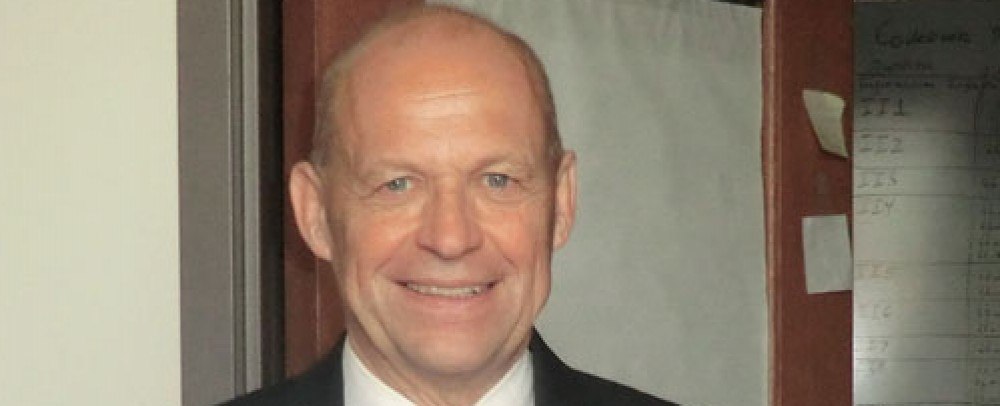Courses | Invited Lectures | Student Advising | Additional Materials
In my teaching I am employing a Participative Learning (PL) style that actively involves students in the process of teaching and learning. In almost all courses I am using what I have called the Expeditionary Triangle, which connects theory with real-world cases involving an instrument or a tool. Those three elements I demonstrate to students effectively inform and influence each other.
Student group work within a term project (the expedition) is a capstone in my PL approach, which always requests a hindsight reflection on the group process. Such debriefings I believe enhance students’ social process awareness and improve individual and group capabilities of learning and performing in teams. Since my arrival at the UW iSchool I have predominantly taught courses in two programs, that is, the Master of Information Management Program (MSIM) and the Master of Library and Information Science Program (MLIS). Also, I am teaching a course sequence in the UW Business School’s Global Executive Program.
Over the past five years I have prepared from scratch seven courses, four of which were core courses and three electives. One of the core courses was prepared for distance mode learning. The courses address various dimensions of Information Management and their organizational ramifications. Most courses I teach are for Executive level students who pursue a master’s degree while being employed in industry or government. Those students typically hold leadership or senior professional positions in their organizations.
In my teaching, I always introduce findings from most recent research including my own. According to the consistent feedback, which I have received over the years, in both the classroom and distance mode my students benefit from the PL-based course design and the relevancy to practice originating in my own practitioner experience in the ICT industry. Courses topically range from Change Management, Emerging Trends in Technology and Management, Management of Information Organizations to special topics such as Finance, Marketing, and Information Systems in a Global Enterprise. Both student and peer evaluations of my teaching have been very favorable.
Courses Prepared and Taught (since 2003)
- INSC 572 | Qualitative Methods in Information Science, PhD program.
- IMT 500 | Introduction to the MSIM Program. MSIM program.
- IMT 541 | Enterprise Information Systems Analysis and Design. MSIM program.
- IMT 580 | Management of Information Organizations. MSIM program.
- IMT 581 | Information and the Management of Change. MSIM program.
- IMT 583 | Finance/Accounting for Information Management Professionals. MSIM program.
- IMT 584 | Marketing for Information Management Professionals. MSIM program.
- IMT 585 | Human Resource Management for Information Management . MSIM program.
- IMT 586 | Information Dynamics I. MSIM program.
- IMT 587 | Information Dynamics II. MSIM program.
- IMT 598 | Emerging Trends in Information Management and Technology. MSIM program.
- INFX 598 m | Culture, Business, and Information Management in Central Europe. UW Exploration Seminar.
- LIS 580 | Management for Information Organizations. MLIS program and Online MLIS program.
Invited Formal Lectures
- The Critical Role of Functioning Information Infrastructures in Disaster Response. International Conference in Information Systems for Crisis Response and Management (ISCRAM), 2015.
- When Things Fall Apart: The Critical Role of Information Infrastructures When Responding to a Major Disaster. Department of Informatics University of Zurich, 2015.
- Smart Government of the 21st Century: Challenges, Opportunities, and Early Examples on Local Levels. Guest Lecture at the Technical University of Munich/Germany, 2013.
- Electronic Government Research (EGR): Current State and Major Challenges in the Years Ahead. National Association of Government Archivists and Record Administrators (NAGARA), E-Records Forum, 2012
- Open Government. German Society for Informatics. Friedrichshafen, April 2012
- Good e-Government Research. Scientific Society for Digital Government (WIDIGO), Friedrichshafen, Germany, April 2012
- Recent Research in Electronic Government (fellow lecture at the Institute for Advanced Studies), Delmenhorst, Germany
- E-Government and Governmental Interoperation. Preliminary Results and Insights from Multiple Case Studies, Berliner Bibliothekswissenschaftliches Kolloquium (BBK), Humboldt University, Berlin, Germany. November 2010
- Challenges in E-Gov Research, at the e-Gov PhD Colloquium, Copenhagen Business School, Copenhagen/Denmark, August 2005
- E-Government: Current Issues and Practices, (PBAF 598) at the Evans School, Univ. of Washington, (Instructor: David Tetta), Seattle, WA, January 2005
- IT Sourcing: Strategic Challenges, at the Zurich MBA Forum, Zurich, Switzerland, March 2005
- Information, Information Systems, Strategic Success, & the Sourcing Mix, at the Zurich MBA Congress, Zurich, Switzerland, October 2004
- E-Business: What’s so new? At the Zurich MBA Congress, Zurich, Switzerland, October 2000
- System Thinking and System Dynamics, at the Zurich MBA Forum, Zurich Switzerland, Marck 1999
PhD Student Advising
- Member, Supervisory Committee of Patricia Katopol (graduated 2006), Shuhua Liu (graduated in 2010), Chic Naumer, and Shawn Walker
- Chair, Supervisory Committee of Tim Carlson
Important Material Regarding Teaching and Learning
| According to Ernst von Glasersfeld (1995), human “knowledge is not passively received but built up by the cognizing subject” (p. 18); the author also holds that “the function of cognition is adaptive and serves the organization of the experimental world, not the discovery of ontological reality” (ibid). Those two principles (re)define the way teaching and learning have traditionally been interpreted. It also dramatically changes the instructor’s role and function in the learning process from a conveyor of knowledge to a facilitator of learning. Thus, teaching and learning as complex and intertwined social processes receive a new meaning inside and outside the classroom.I will continue to post important material in this regard at this site. Below are links to three documents, which highlight (1) the various schools of thought regarding human knowledge, (2) the introvert individual’s approach to learning, and (3) the extrovert’s approach to learning. I owe these documents to Mark Unno from the University of Oregon. You may find many more interesting materials at his website.
|
